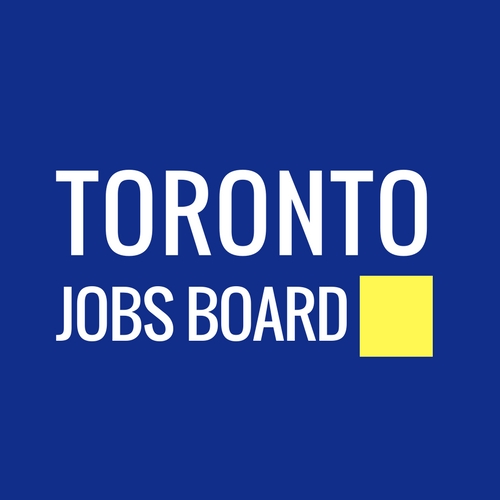To ace group interviews, prepare thoroughly and actively participate. Show leadership while respecting others' opinions.
Group interviews can be challenging yet rewarding. They assess your ability to work well with others, communicate effectively, and demonstrate leadership skills. Preparation is key; research the company and role thoroughly. Practice common interview questions and develop a clear understanding of your strengths.
During the interview, engage actively but avoid dominating the conversation. Listen attentively and show respect for others' contributions. Demonstrating teamwork, adaptability, and problem-solving skills will set you apart. Confidence, clarity, and genuine interest in the role are essential. Showcasing these qualities increases your chances of success in a group interview setting.
Preparation essentials
Thorough preparation is key to success. Below, we will explore essential steps to help you excel in group interviews.
Research the company
Before the interview, researching the company is crucial. Knowing the company's mission, values, and products can set you apart from other candidates. Here's how to do it:
- Visit the company’s website: Read about its history, mission, and values.
- Check recent news: Look for recent articles or press releases about the company.
- Understand their products: Know what products or services they offer.
Use the information you gather to tailor your responses during the interview. Show how your skills and values align with the company’s goals. This will demonstrate your genuine interest and make a lasting impression.
| Resource | Description |
|---|---|
| Company website | Provides comprehensive information about the company. |
| News articles | Offers insights into the company’s recent activities. |
| Product pages | Details the products or services they offer. |
Know the role
Understanding the role you are applying for is essential. This helps you answer questions effectively and show you are a perfect fit. Here’s what to do:
- Read the job description: Note the key responsibilities and required skills.
- Identify the skills: Match your skills with those listed in the job description.
- Prepare examples: Think of specific examples where you have demonstrated these skills.
Knowing the role helps you align your experiences with the job requirements. It shows the interviewers you understand what the job entails and how you can contribute. This preparation helps you answer questions confidently and stay focused during the interview.
| Preparation step | Benefit |
|---|---|
| Reading job description | Understand key responsibilities and skills required. |
| Identifying skills | Match your skills with job requirements. |
| Preparing examples | Provide concrete examples during the interview. |
Understanding group dynamics
Group interviews can be challenging. Understanding group dynamics, which involve how individuals in a group interact and work together, is key to acing them. Knowing this helps you stand out and perform well.

Roles in a group
In a group interview, everyone takes on different roles. Recognizing these roles can help you navigate the interview more effectively. Here are some common roles:
- Leader: This person takes charge. They guide discussions and make decisions.
- Facilitator: They help keep the group on track. They ensure everyone has a chance to speak.
- Innovator: This individual comes up with new ideas. They think outside the box.
- Supporter: They encourage others. They help build a positive atmosphere.
- Critic: They analyze ideas critically. They point out potential flaws.
Each role plays a part in the group's success. Understanding these roles can help you identify where you fit best. It also helps you adapt to different situations during the interview. For instance, if you see a gap, you can step in to fill that role.
Building rapport
Building rapport with other candidates is crucial. It shows you can work well with others. Here are some tips to build rapport during a group interview:
- Listen actively: Pay attention to what others are saying. Show that you value their input.
- Engage positively: Use positive body language. Smile and nod to show agreement and encouragement.
- Find common ground: Look for shared interests or experiences. This helps build a connection.
- Be respectful: Respect others' opinions, even if you disagree. This fosters a collaborative environment.
- Contribute meaningfully: Add value to discussions. Share relevant ideas and insights.
These tips can help you build strong relationships with other candidates. They will also show interviewers that you are a team player and make the group work more effectively.
Effective communication skills
One key to success is mastering effective communication skills. These skills not only help you stand out but also showcase your ability to work well in a team. Let's explore some essential aspects of effective communication in group interviews.

Active listening
Active listening is crucial in group interviews. It shows that you value others' opinions and are engaged in the discussion. Here are some tips to improve your active listening skills:
- Maintain eye contact with the speaker to show interest.
- Nod occasionally to indicate you are following the conversation.
- Avoid interrupting the speaker. Let them finish before you respond.
- Paraphrase what the speaker said to show you understood.
- Ask clarifying questions if you need more information.
Consider the following table that outlines the do's and don'ts of active listening:
| Do's | Don'ts |
|---|---|
| Focus on the speaker | Look at your phone |
| Respond appropriately | Interrupt the speaker |
| Show empathy | Judge or criticize |
Clear articulation
Clear articulation ensures your points are understood. Speaking clearly and confidently is key. Here are some tips to articulate your thoughts better:
- Speak slowly to ensure clarity.
- Use simple words and avoid jargon.
- Organize your thoughts before speaking.
- Practice good posture to project confidence.
- Use hand gestures to emphasize points.
Let's break down some elements of clear articulation:
- Volume: Speak loud enough for everyone to hear.
- Pace: Avoid speaking too fast or too slow.
- Tone: Keep a friendly and professional tone.
Remember, clear articulation helps you express your ideas and make a lasting impression on the interviewers.
Showcasing teamwork
Again, group interviews present unique challenges, but showcasing your teamwork abilities can help you stand out. Employers are looking to see how effectively you collaborate with others. Demonstrating strong teamwork skills can give you an edge over other candidates. Let’s explore some strategies to help you excel in group interviews by highlighting your ability to work well within a team.

Collaborative contributions
In group interviews, collaborative contributions are crucial. Show your ability to work with others. Here are some effective ways to showcase this:
- Actively listen: Pay attention to what others are saying. Show genuine interest in their ideas.
- Share ideas: Don't hesitate to share your thoughts. Make sure they add value to the discussion.
- Build on suggestions: Enhance others' ideas. This shows you are listening and willing to collaborate.
- Ask questions: Ask clarifying questions. This shows you are engaged and interested in understanding fully.
Consider the following table to understand how to make collaborative contributions:
| Action | Benefit |
|---|---|
| Listening | Shows respect and understanding |
| Sharing ideas | Contributes to the team's success |
| Building on suggestions | Demonstrates teamwork and creativity |
| Asking questions | Shows engagement and clarity |
By following these strategies, you can effectively contribute to the group. This will showcase your teamwork skills during the interview.
Respecting others
Respecting others is vital in a group interview. It creates a positive environment. Here are some tips to show respect:
- Avoid interrupting: Let others finish speaking. It shows you value their input.
- Use positive body language: Nod and smile. This shows you are engaged and supportive.
- Acknowledge contributions: Recognize others' ideas. A simple "That's a great point" can go a long way.
- Be polite: Use polite language. Phrases like "please" and "thank you" show respect.
The table below highlights actions that show respect and their impact:
| Action | Impact |
|---|---|
| Avoid Interrupting | Shows you value others' thoughts |
| Positive body language | Creates a supportive environment |
| Acknowledge contributions | Encourages more ideas |
| Be polite | Maintains a respectful tone |
Respecting others during a group interview can significantly impact the overall dynamic. It shows you can work well with others.
Handling difficult situations
Handling difficult situations well is key to standing out. You must stay calm, think quickly, and work well with others. This guide helps you handle disruptions and manage conflicts during group interviews.
Dealing with disruptions
Disruptions can come in many forms. Someone might dominate the conversation. Others might interrupt constantly. To handle disruptions effectively, remember these tips:
- Stay calm: Maintain your composure. Take deep breaths if needed.
- Listen actively: Pay attention to what is being said. This shows respect and can help you respond better.
- Interject politely: If someone is dominating, wait for a pause. Then, interject with phrases like, "I'd like to add..." or "Can I share my thoughts?"
- Use non-verbal cues: Nod, maintain eye contact, and use hand gestures to signal your intent to speak.
Here's a quick table to summarize:
| Disruption type | Handling tip |
|---|---|
| Domination | Interject politely |
| Interruptions | Use non-verbal cues |
| Off-topic Comments | Redirect the conversation |
Managing conflicts

Conflicts may arise during group interviews. Different opinions and personalities can clash. Here are some tips to manage conflicts:
- Stay neutral: Avoid taking sides. Focus on the issue, not the people involved.
- Find common ground: Look for agreements. This can help ease tensions.
- Use "I" Statements: Say things like "I feel..." instead of "You are..." to reduce blame and defensiveness.
- Suggest solutions: Offer constructive ideas. This shows leadership and problem-solving skills.
Here’s a simple strategy to manage conflicts:
- Identify the conflict.
- Listen to all sides.
- Find common ground.
- Suggest solutions.
- Reach a consensus.
You can shine in group interviews by handling disruptions and managing conflicts well. Show your ability to stay calm, listen, and work with others effectively.
Body language tips
Mastering body language can set you apart. Your body language speaks volumes and can convey confidence, attentiveness, and respect. Here are some essential body language tips to ace group interviews.
Positive posture
Maintaining a positive posture is crucial during group interviews. It shows confidence and readiness to engage. Here are some tips:
- Sit up straight: A straight back indicates attentiveness and interest.
- Feet flat on the ground: This helps you stay grounded and stable.
- Relax your shoulders: Tense shoulders can indicate nervousness. Keep them relaxed to appear calm.
- Lean slightly forward: This shows you are engaged and interested in the conversation.
It's also essential to avoid negative postures, such as:
| Negative posture | Why to avoid |
|---|---|
| Slouching | Shows disinterest and lack of energy |
| Crossed arms | Appears defensive and closed off |
| Tapping feet or fingers | Indicates impatience and nervousness |
By maintaining a positive posture, you communicate that you are confident and engaged, making a strong impression on the interviewers.

Eye contact
Eye contact is a powerful tool in group interviews. It helps establish connections and shows confidence. Here are some strategies:
- Make eye contact with each interviewer: This shows you are inclusive and respectful.
- Hold eye contact for 3-5 seconds: This duration is enough to show confidence without staring.
- Avoid looking down or around the room: This can make you seem uninterested or nervous.
- Smile with your eyes: A genuine smile that reaches your eyes creates a warm and friendly impression.
It's important to balance eye contact:
- Look at the person speaking to show you are listening.
- Shift your gaze to others to include everyone.
Too much or too little eye contact can be problematic. Practice to find the right balance. Effective eye contact can make you appear more trustworthy and engaged, which is crucial for standing out in group interviews.
Follow-up strategies
Following up properly can make a big difference. Effective follow-up strategies show your interest and professionalism. They help you stand out. Here are some proven follow-up strategies to ace your group interview.
Thank you notes
Sending a thank you note is crucial. It shows appreciation and reinforces your interest in the position. Here’s how to do it:
- Send the note within 24 hours.
- Address each interviewer by name.
- Mention something specific from the interview.
- Reiterate your interest in the role.
Here’s a sample thank you note:
Dear [Interviewer's Name], Thank you for the opportunity to interview for the [Job Title] position. I enjoyed discussing [specific topic] with you. I am very interested in this role and believe my skills in [mention skill] will be a great fit for your team. Best regards, [Your Name]
This note is short but impactful. It reminds the interviewers of your conversation. It shows that you value their time.
Reflecting on performance
After the interview, take time to reflect on your performance. This helps you improve for future interviews. Here are some steps to follow:
- Write down the questions asked.
- Note your answers and assess them.
- Identify areas where you felt confident.
- Highlight areas that need improvement.
Here’s a table to help you organize your thoughts:
| Question | Your answer | Strengths | Areas for improvement |
|---|---|---|---|
| Describe a challenge you faced. | Talked about a team project. | A clear example, specific details. | It could be more concise. |
| Why do you want this job? | Mentioned company values. | Aligned with the company's mission. | More emphasis on personal goals. |
Reflecting on your performance helps you learn and prepares you for future interviews. Keep practicing and improving.
Common mistakes
Group interviews can be challenging, with multiple candidates vying for attention. Common mistakes often derail even the best-prepared candidates. Knowing what to avoid can help you stand out positively.
Overtalking
Overtalking is a frequent error in group interviews. Being overly talkative can make you seem domineering and inconsiderate. Balance is key in these settings.
Here are some tips to avoid overtalking:
- Listen actively before speaking.
- Share the floor with others.
- Pause and reflect before jumping in.
Consider this table showcasing the impact of overtalking:
| Action | Perception |
|---|---|
| Interrupting | Rude and impatient |
| Monopolizing conversation | Self-centred |
| Ignoring others' input | Lacking team spirit |
Listening skills are crucial. Always remember, it's not just about what you say but also how you engage others. A good balance of speaking and listening shows you are a team player.
Neglecting others
Neglecting others can be a significant mistake. It happens when you focus solely on your performance, ignoring the contributions of other candidates. Inclusivity is essential in group settings.
Ways to ensure you don’t neglect others:
- Acknowledge others' points before adding yours.
- Ask for opinions from quieter group members.
- Use names when addressing others to personalize interactions.
Here’s a quick guide on fostering inclusivity:
| Action | Outcome |
|---|---|
| Encouraging quieter members | Builds a collaborative atmosphere |
| Reflecting on others' ideas | Shows you value teamwork |
| Using positive body language | Demonstrates openness |
Remember, team success is the focus of group interviews. Showing you can work well with others makes a lasting impression on interviewers.
Nailing a group interview takes preparation and confidence. Practice your communication skills and stay engaged. Remember to be yourself and show genuine interest. With these tips, you'll stand out and make a lasting impression. Good luck on your next group interview journey!



Comments powered by CComment